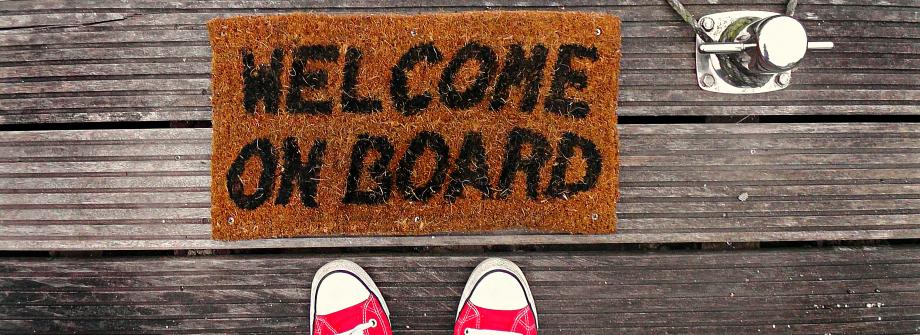
The results of the recent executive committee and working party chairs elections were released in May - see the previous news "2020 election results".
Please meet the newly-elected members:
John Snowden (Sheffield, UK), Secretary
Raffaella Greco (Milan, Italy), ADWP Chair
Rafael de la Cámara (Madrid, Spain), IDWP Chair
Bertram Glass (Berlin, Germany), LWP Chair
John Snowden, EBMT Secretary
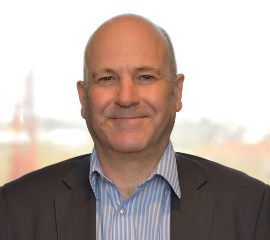
I am extremely honoured to serve as EBMT Secretary over the next four years - in an unprecedented era when the EBMT community is embracing novel cellular therapies and new indications whilst meeting the challenges of COVID-19 pandemic and climate change.
I trained in Haematology and BMT in the UK, New Zealand and Australia. Since 2002, I have been a Consultant Haematologist and BMT Programme Director in Sheffield, UK. I have also had several national roles relating to delivery of BMT and cellular therapies at a public health level. Academically, I have contributed to the fields of BMT and Haematology-Oncology with co-authorship of over 250 publications. I have been actively involved in EBMT for over a decade via JACIE (first as Medical Director, then Chair of the JACIE Committee), as Chair of the ADWP and as a member of the EBMT Board and Scientific Council.
From its early days, the EBMT has provided the principal international framework for sharing good clinical practice, research and education in BMT, and, in recent years, has become central to quality, accreditation and regulatory aspects via JACIE. The EBMT membership is increasingly inclusive; physicians, nurses, scientists, pharmacists, psychologists, quality and data managers, and now donors, patients and families.
The EBMT Secretary has key roles and responsibilities across all these aspects of the organisation, whilst providing clinical support for the EBMT administrative staff. In line with EBMT’s Mission and Vision, I am committed to:
- Education, including new ways of delivering congresses and symposia, and continuing the good work of the EBMT Handbook with implementation of the EBMT Curriculum and Examinations.
- Quality and Accreditation through JACIE and delivering the benchmarking initiative.
- Working with others to deliver the ‘Project 2020’ registry upgrade for the long-term benefit of EBMT centres and patients.
- Promoting collaboration, including good relations with ASTCT, CIBMTR, WBMT and FACT.
- Working closely with the EBMT Nurses Group and EBMT Patient Advocacy Committee.
- Encouraging inclusivity via the Equality and Diversity initiative.
Supporting the EBMT membership and our patients through the challenges of the post-COVID era.
Raffaella Greco, Autoimmune Diseases Working Party Chair
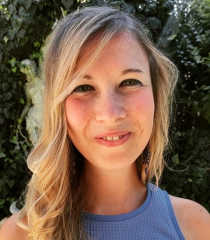
I am a haematologist trained at Haematology and Bone Marrow Transplantation Unit in San Raffaele Scientific Institute in Milano. My career has been focused on allogeneic hematopoietic stem cell transplantation (HSCT) and cellular therapies in all spectrum of haematological cancers and non-malignant indications.
I look at Autoimmune Diseases Working Party (ADWP) as a unique opportunity to contribute to the core activities of our Society. Autoimmune diseases (ADs) are a major cause of morbidity; their incidence and prevalence continue to rise. HSCT has evolved for >20 years as a specific treatment of patients with severe ADs, through eradication of the pathologic, immunologic memory and profound immune ‘resetting’.
Major efforts will be dedicated in comparing HSCT with alternative treatments, refining conditioning regimens and other aspects of transplantation, by promoting retrospective analysis for HSCT in ADs under the EBMT shelter. Moreover, in selected indications prospective trials should be promoted at the state of the art of our transplant practices tailored for these ADs conditions. The collaboration and the connection of haematologists with other specialists and their respective societies will continue to be fostered, as well as public health commissioners, to define the place in therapy of HSCT in relation to other modern treatments. Novel cellular therapies (i.e. mesenchymal cells, CAR-T regs) may be implemented in the field of ADs, through collaborations with other EBMT groups and the International and European Societies of Cell/Gene Therapy and major investors in the field.
The future of HSCT in ADs depends on the dynamic with alternative treatment options, including new biological agents.
I believe that all these efforts will additionally help the Working Party in promoting and supporting the ongoing studies in this field, thus continuing to foster excellent science, instrumental for more effective and personalised therapeutic procedures.
Rafael de la Cámara, Infectious Diseases Working Party
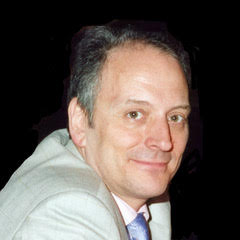
I am a clinical haematologist involved in the care of SCT patients since 1985, particularly interested in their infectious complications. I have worked at the Hospital de la Princesa since 1989 as Haematologist Consultor, and at the Hospital de la Zarzuela where I am the Head of Haematology. Both Hospitals are in Madrid, Spain.
Since 5 May 2020, I am the new chair of the IDWP which is an honour and a challenge.
First of all, I want to recognise the efforts and excellent work of all the previous chairs of the group, and particularly to Dr Jan Styczynski, the previous chair, and to Dr Malgorzata Mikulska, the previous Secretary of the group, for their splendid work and friendly attitude.
I have four objectives for the IDWP:
- First, Increase the visibility of the group by increasing its scientific production, promoting good studies for better management of the infectious complications of SCT patients. The SARS-CoV-2 pandemic reminds us how we are all susceptible to infections, a situation that is particularly common and severe in SCT patients, making international collaboration more necessary than ever. This collaboration has allowed the IDWP to collect more than 300 COVID-19 in SCT patients, that will be essential to know the clinical picture and evolution of this infection, allowing better management in the future.
- Expand the participants of the IDWP by attracting young members and people from countries that now don’t participate.
- Increase the educational activity of the group, adding an online certificated program of SCT infection complications.
- Maintain the excellent atmosphere that has always characterised the IDWP, a group where anyone can present initiatives with freedom in a friendly setting. This is one of the most important hallmarks of the group: good science in a pleasant atmosphere.
These objectives will require a change in the structure of the working party and a close relationship with the "masters" of the IDWP group, we all know who they are. We need their advice, involvement and collaboration to push forward the group.
Bertram Glass, Lymphoma Working Party Chair
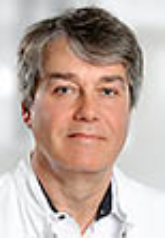 Thank You very much for the trust that was expressed in the election as a chair of the lymphoma working party of the EBMT.
Thank You very much for the trust that was expressed in the election as a chair of the lymphoma working party of the EBMT.
My name is Bertram Glass, I am the director of the Klinik für Hämatologie und Stammzelltransplantation at the Helios Klinik Berlin-Buch. Our hospital is a large third level health care provider in the German capital serving all kinds of hematologic therapy including autologous and allogeneic stem cell transplantation as well as CART-therapy. I have been involved in clinical science mostly in the field of relapsed and refractory aggressive lymphoma. For many years I was a member of the steering board of the former Deutsche Studiengruppe hochmaligne Non-Hodgkin-Lymphome (DSHNHL) and now I represent as one two speakers the working party aggressive Lymphoma within the German Lymphoma Alliance (GLA).
With this history in the background there are two major objectives I would like two realize as the new chair of the WP lymphoma:
First I would like to help structuring the process that opens EBMT to the new forms of cellular therapy as CART and considers there embedment in the complex theatre of all new forms of modern lymphoma therapy. More than in the past, all cellular therapies are just one piece of a complex and very dynamic evolving treatment portfolio. To define its role, we need tools that allow analysing the whole treatment process and not only those parts that deal with cellular therapy. Modifications of our coding system for the EBMT may be one part of it.
The second topic is somehow connected to the first one. Aside from the established registry, EBMT needs especially in the field of lymphoma therapy the capability to run own (investigator initiated) prospective clinical trials (IIT). To my opinion, EBMT could be the optimal sponsor and host for multinational clinical IITs, which compare particular cellular therapies for lymphoma with each other and other treatment modalities in this field.